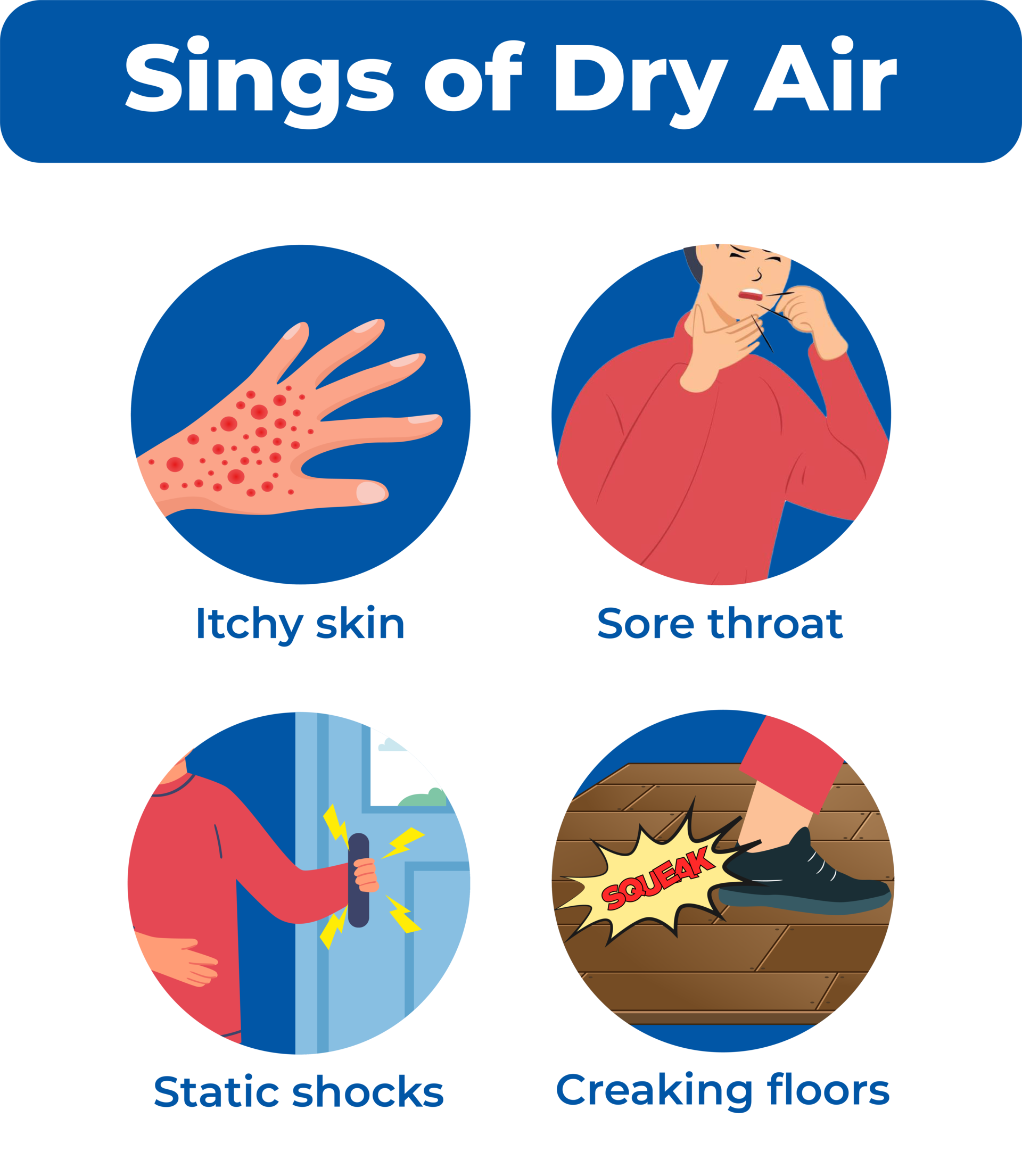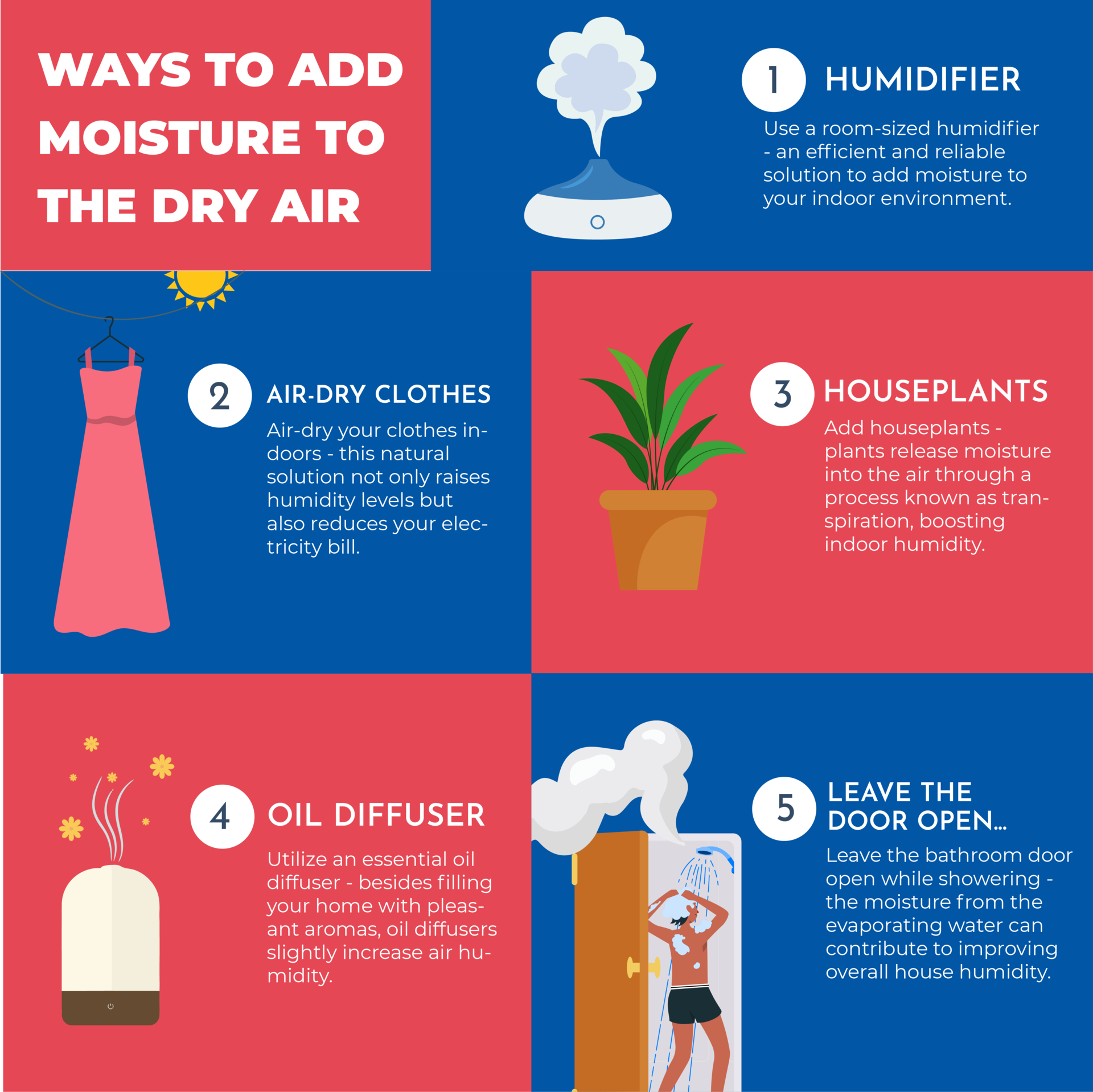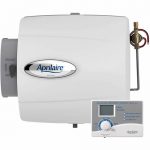Does Your Air Conditioner Make the Air Too Dry?
Understanding the Effects of AC Units on Home Humidity Levels
Dealing with Colorado’s Dry Air
With our high elevation and central location within the United States, Colorado has a unique climate. We enjoy cool and refreshing weather, however, the air is quite dry, leading to everything from sore throats to cracked woodwork.
Overall, the arid climate has an impact on our comfort indoors, especially when combined with the effects of home air conditioning systems.
But don’t worry! By understanding home AC systems and how they can cause dry air in your house, you’ll learn all the ways to create a comfortable indoor environment.
Table of Content:
- Signs of Dry Air in Your Home
- Does an Air Conditioner Cause Dry Air?
- Fixing the Dry Air in Your House
- FAQs
- Solving for Dry Air in Your House
Signs of Dry Air in Your Home
When your air conditioner is cooling your home, it’s not only recirculating cool air but also removing humidity from the environment. While this feature keeps your home comfortable by reducing that muggy feel, it might also contribute to an excessively dry atmosphere. If you have an older air conditioner, you may notice more of an impact, and may even want to look into installing a new system.
During the summer, and throughout the year, this dry air can cause a range of issues that impact both your health and the comfort of your home. It’s essential to keep an eye out for signs that the air in your home is too dry in order to find the right solution.

Health and Well-Being
During the summer, one of the first things people may notice is a sore throat from their air conditioning. If you notice frequent coughing, or nasal congestion while indoors, it could be due to the dry air. For those with asthma or allergies, this can aggravate symptoms and increase the risk of respiratory infections.
When your air is excessively dry, also pay attention to your skin. If you notice it feeling dry, itchy, or tight, it’s a sign that your home’s humidity levels are too low.
A dry environment can also weaken your body’s defenses, making you more susceptible to airborne illnesses and viruses. Believe it or not, dry air can even steal your body’s natural warmth by making sweat evaporate quickly, leaving you feeling less comfortable indoors.
Comfort and Sleep
Another sign of dry air in your house is the build-up of static electricity. If you experience frequent static shocks when touching objects or people, it may be an indication that the air in your home lacks moisture.
When an air conditioner causes dry air, it can also make it harder to sleep comfortably. If you find yourself waking up with a dry throat or experiencing increased snoring, your AC system may be to blame.
Damage To Your Home
If you suspect dry air in your home, check your walls and furniture for cracks or peeling paint. These issues can be caused by low humidity levels, and it’s important to take care of them to maintain the appearance of your home.
Lastly, listen closely for creaking floors or see if you notice gaps in your wooden furniture. Dry air can cause wood to shrink or warp, leading to these issues. Fixing the dry air in your house can help prevent damage to your walls, furniture, and floor.
Does an Air Conditioner Cause Dry Air?
Air conditioning units are great for keeping our homes cool, but they can also affect humidity levels.
Warmer air naturally contains more moisture. When air passes through your air conditioning system, the extra moisture is removed during the cooling process. Air conditioning systems have a condensate drain line for this exact reason, allowing the condensation that forms to drain out of the unit safely.
While this cycle keeps your rooms nice and cool, decreased humidity levels can cause discomfort. This can be more noticeable if your house already has dry air, especially in areas like Colorado where the climate is more arid. While there is no direct way to avoid an air conditioner from causing dry air, there are other ways you can fix the dry air in your house.
Fixing the Dry Air in Your House
Keeping the air in your home at the right humidity level can help your space feel more comfortable and contribute to a healthier environment for you and your family.
Here are some simple ways to add moisture to the dry air in your home:
- Use a room-sized humidifier – an efficient and reliable solution to add moisture to your indoor environment.
- Air-dry your clothes indoors – this natural solution not only raises humidity levels but also reduces your electricity bill.
- Add houseplants – plants release moisture into the air through a process known as transpiration, boosting indoor humidity.
- Utilize an essential oil diffuser – besides filling your home with pleasant aromas, oil diffusers slightly increase air humidity.
- Leave the bathroom door open while showering – the moisture from the evaporating water can contribute to improving overall house humidity.
You can use any of these various strategies to fight against dry indoor air, choosing to implement them individually or to combine them based on what suits you best. Most of these strategies are simple to incorporate into your daily routine and won’t require much effort, helping you to get rid of dry air and have a more comfortable space.
Optimizing your HVAC System
While an air conditioner will always have some impact on the humidity levels in your home, there are other ways you can help avoid excessively dry air.
Firstly, make sure your air conditioner is well maintained. By cleaning and replacing air filters on a regular basis, you’ll help to increase airflow and circulation. If your system is old and reaching the end of its lifespan, you may want to look into replacing your air conditioner. Newer, more energy-efficient systems help to better balance the impact that an AC unit has on indoor air humidity.
In addition, a whole home humidifier is another way to help balance the moisture in the air. These systems use fans or steam to circulate moisture and remedy the negative effects caused by dry air in your house.
FAQs
When running an air conditioner, some moisture is naturally removed from the air during the cooling cycle.
When you turn on your AC unit, it draws warm air from inside your home into its system through a vent. Inside the unit, the air encounters evaporator coils that are chilled by a refrigerant. As the warm air passes over these cold coils, the temperature difference causes the moisture in the air to transform into water droplets, just like how droplets form on a cold glass on a hot day.
These condensed water droplets then gather in a drip pan or drain and are directed outside your home through a drain pipe or released as water vapor. After the moisture is removed, the air becomes cooler and less humid, and it is then circulated back into your home.
Running a portable humidifier is a quick solution; these devices are specifically designed to increase indoor humidity levels. Alternatively, growing certain houseplants can naturally improve air moisture, thanks to the transpiration process.
Other easy methods include air-drying laundry indoors or placing dishes of water near heat sources. Remember, maintaining optimal humidity levels contributes to a comfortable living environment and promotes better health.
To fix the dry air in your house, you must first ensure your HVAC system is working properly. Poor AC installation or cracked ductwork can result in insufficient moisture control. If your system is functioning correctly, consider home-based solutions.
These might include running a humidifier, adding moisture-loving houseplants, or even boiling water on the stovetop more often. You can also look into whole-home humidifiers to evenly maintain the moisture in your air. Remember, maintaining a balance between too dry and too humid is key for a comfortable and healthy living environment.
Solving for Dry Air in Your House
Whether you’re experiencing a sore throat from your air conditioning or are simply uncomfortable because of excessively dry air in your house, knowing the right remedies can help you enjoy the cool air and still stay comfortable.
An air conditioner impacts humidity because of the way that air is cooled; during the cooling cycle condensation naturally forms just like on a glass of cold water on a warm day. To help balance this, you can employ strategies like getting houseplants or looking into a whole home humidifier. Regular AC maintenance is also important in keeping your air from getting too dry.
If you’re interested in learning more about fixing dry air in your house, reach out to your local air conditioning experts like the techs at Sanders & Johnson!






